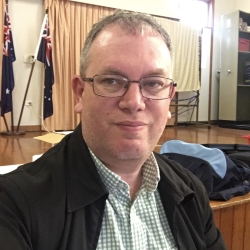Tourism also comes into it for Eric as well. “I want to say the UK, but I haven’t played there enough, since it always seems like the dates to play the big tournaments there never work for various reasons. I would have to say I love going to tournaments in Asia. Thailand would head that list, since I have been to many Princess and King’s Cups. I have a fondness for Thailand, as my family’s recent 6-week vacation in Koh Samui this summer can be entered as evidence. Also, I always get a warm feeling from the people, the weather is consistent, I can always find the footy and the food is fantastic.”
Combining everything that the trio enjoy about Scrabble, what would be their ideal Scrabble event? The themes of top players, prize pool, streaming and tourism all play a part.
Lewis says “It would be a WSC or other big international event played where most of the top players could attend. We would play for a substantial prize pool over 40 games or so, with multiple live streams for the top few games.”.
Eric goes on to add “have as many of the top players in the world playing in the event, so the prize money would have to be mouthwatering. If we are speaking about ideal, then there would be no shortage of sponsors. Would it be bad to have 300-400 people in an Open?”
Nick continues “the host nation would have plenty of media outlets attend and open the event to spectators: once the curiosity factor sinks in, you get a good chance of attracting more people to tournaments. One of my earliest memories of tournaments was the number of people allowed in to spectate. It has dissipated over time so it would be fascinating to see if we can resurrect the concept of a crowd”.
As to where… for Lewis, it would be “in a city that offers tourism aplenty with great food and drink”. Eric suggests “it shall be played in rural Lancashire, with alternating Liverpool matches and Phish shows as evening entertainment.”
Nick adds “my preference is biased to Melbourne, for obvious reasons… but I agree with Eric that you need access to good football too - and the Hammers must be involved”.
Nick has been on WESPA committees prior to his election, having been - and continuing to be - Chair of Promotions for WESPA. He juggles this with managing the WESPA website content, the Facebook page for his home state in Scrabble and managing two domestic online Scrabble leagues.
His first WESPA rated tournament was in 2012.
Eric’s first WESPA rated tournament was in 2009, and this year’s UK Open Warm Up was his 30th on the circuit. He is married, with 6-year-old twins. “I’m not sure if Sarah fully understands my passion/addiction, but she gets it on most levels. I am an English teacher, so it is not a stretch to see how much I love words. She knows how competitive I am, as well. It used to be sports, but now it is Scrabble. In the end, I think she approves.”
Lewis is the highest ranked of the three players, having reached top 5 in the world previously and when asked for his memorable game, includes Game 32 at WESPAC in Perth. When asked for his tips to improve one's Scrabble game he says “Analysing my own games, and that of other players, is a great way to improve. However, it takes strength of character to do this and a certain amount of honesty - being confronted with mistakes you’ve made can be disheartening. I owe a great deal to the creators of both Quackle and Zyzzyva - those pieces of software have spurred me on to heights greater than I thought I could achieve.”
He’s also commentated on games in live streams, an area which has had growing interest in the Scrabble world.
We conclude with his observations on this relatively new (for Scrabble) feature: “Commentating on games is good fun. I’ve been told by a few people that they enjoyed my commentary and found it enlightening. However, it’s tough to pitch it to a novice audience - the people who watch these streams are already tournament players. If we want to package it for casual viewers, we need to make it accessible. It would be good to have one person (a more casual player) asking another (an expert) to explain a position and what a player is thinking. Explanatory graphics and boxes explaining the lingo of the game (like they used to do on the World Poker Tour broadcasts) would be useful to add after a stream has ended.”
Interviews, with thanks to Eric Kinderman, Nick Ivanovski and Lewis Mackay


 WESPA EXECUTIVE COMMITTEE CHANGES
WESPA EXECUTIVE COMMITTEE CHANGES